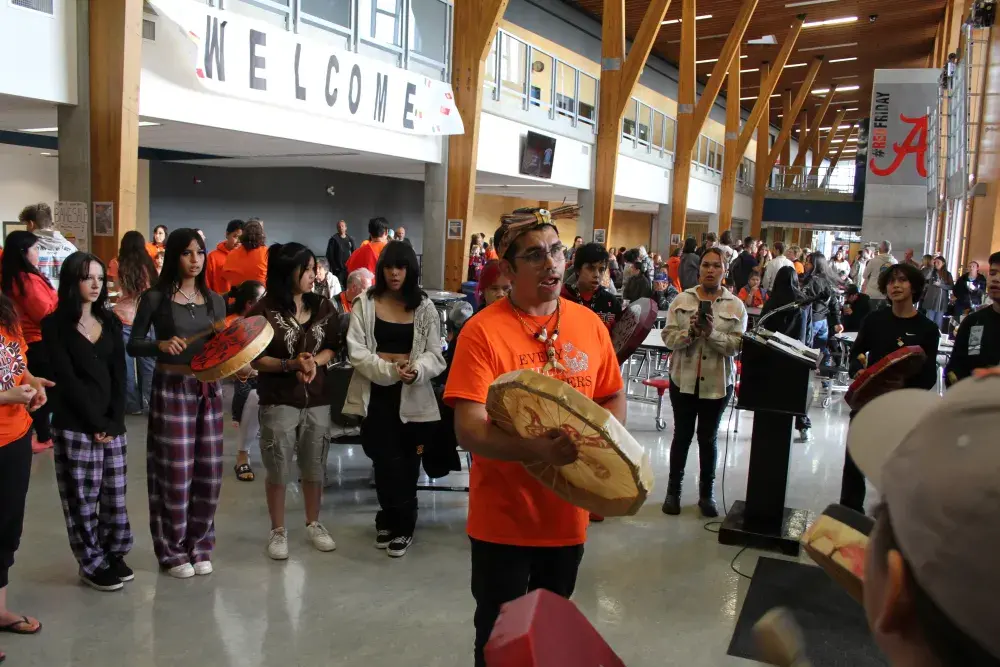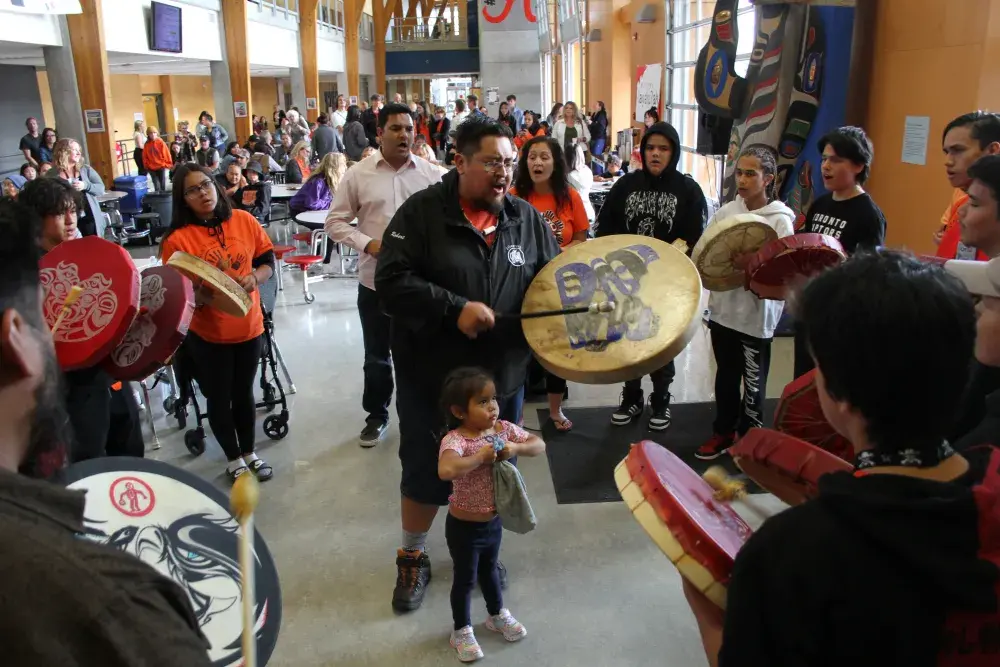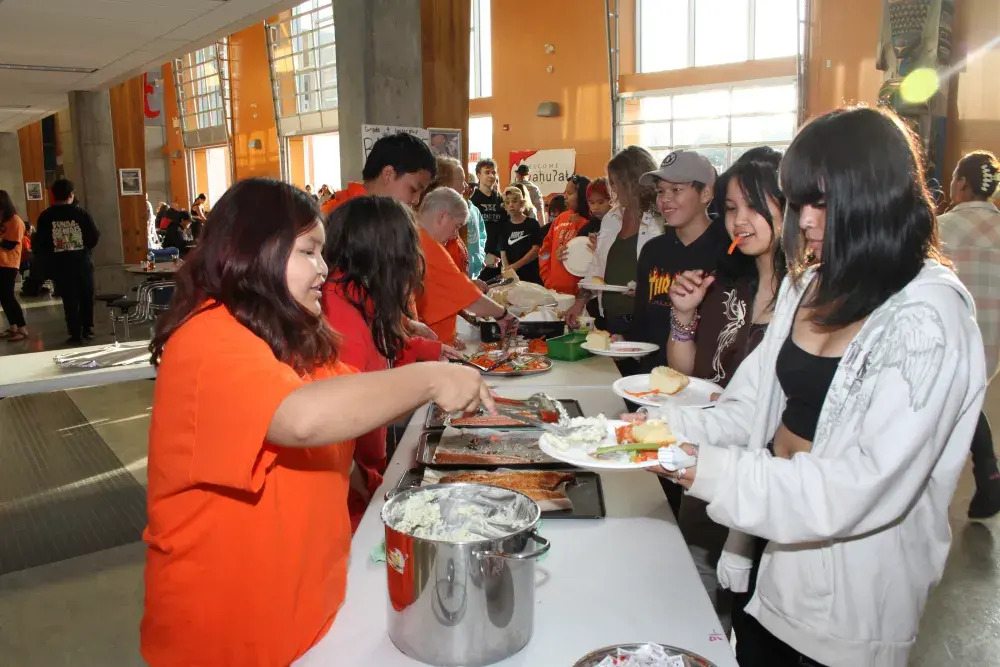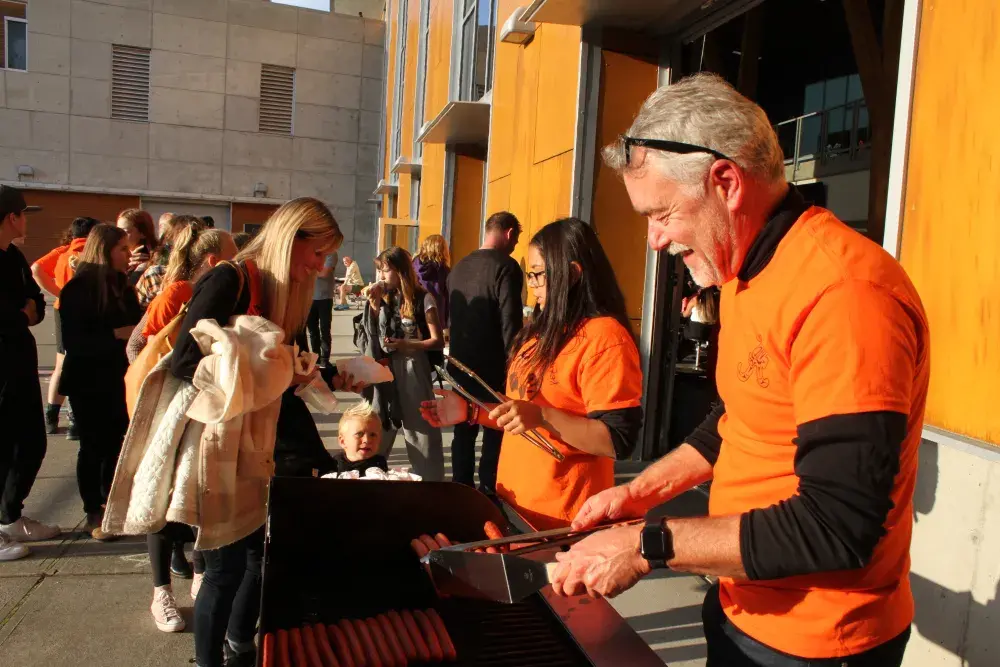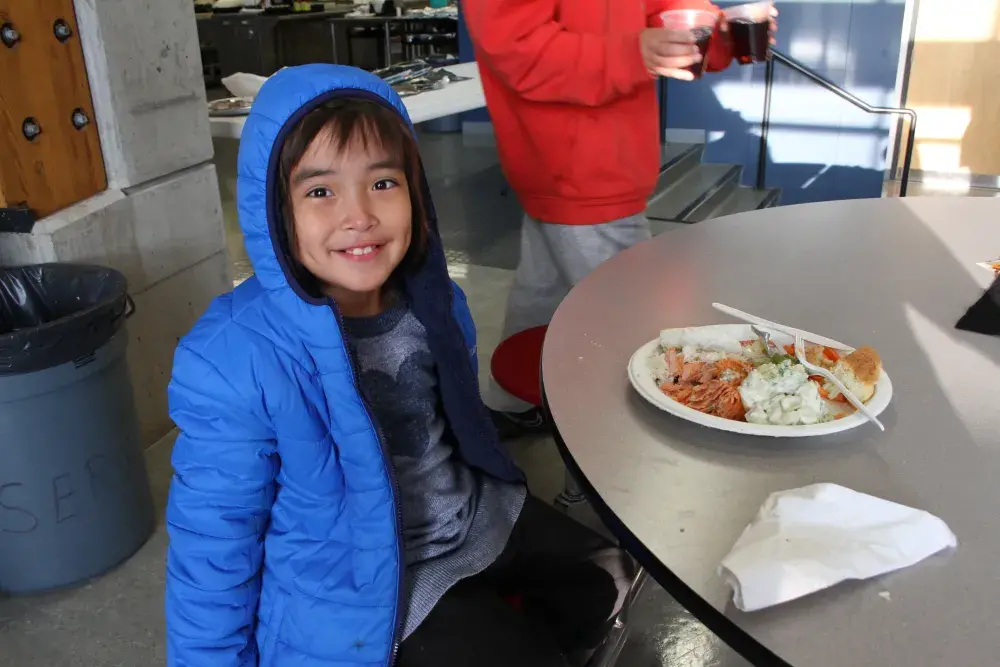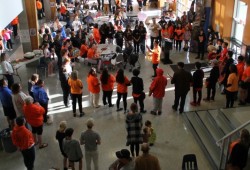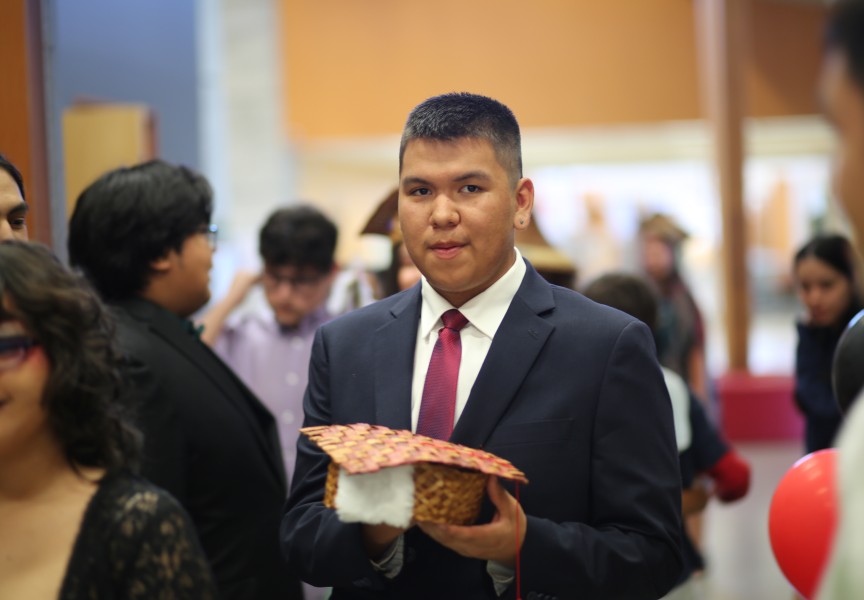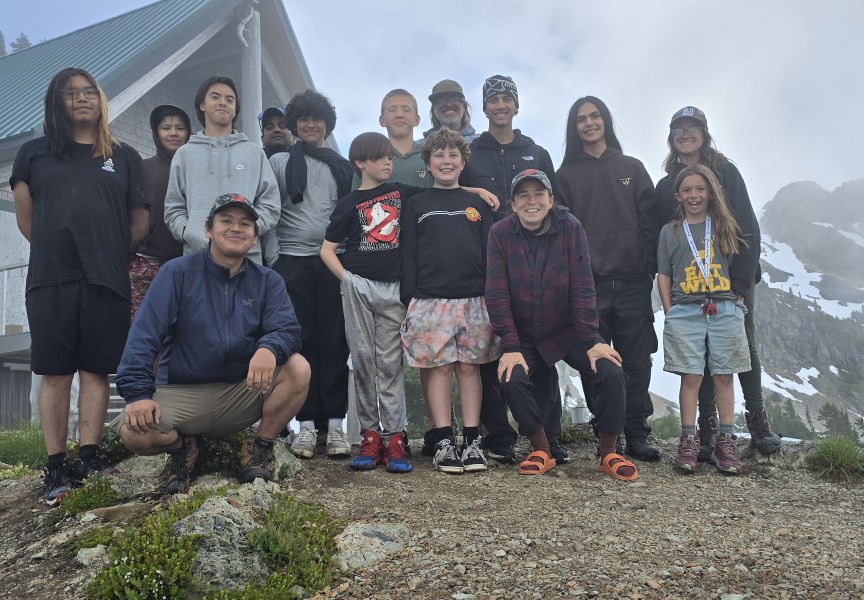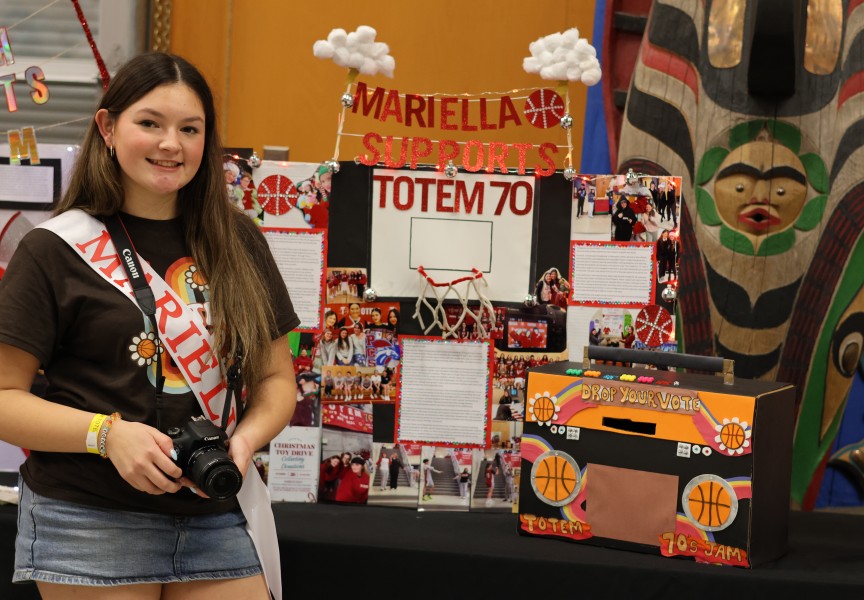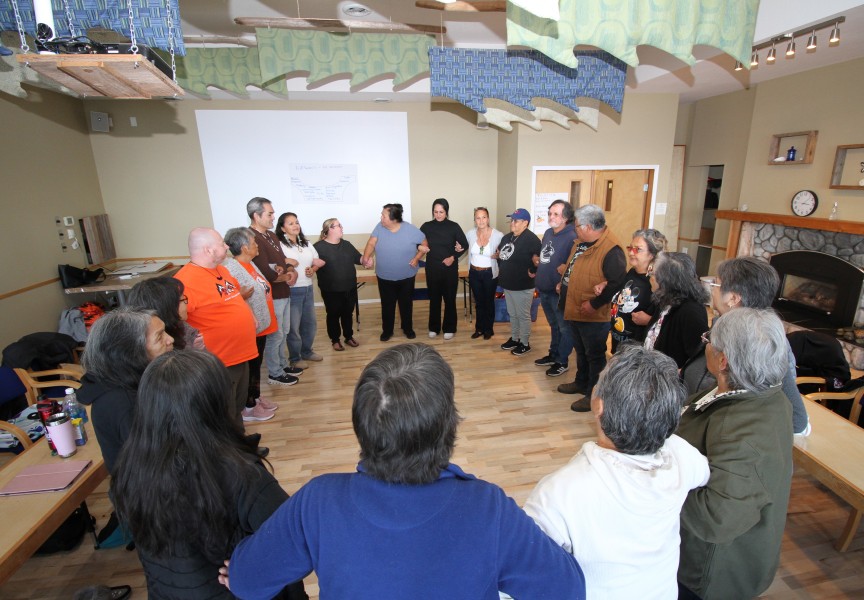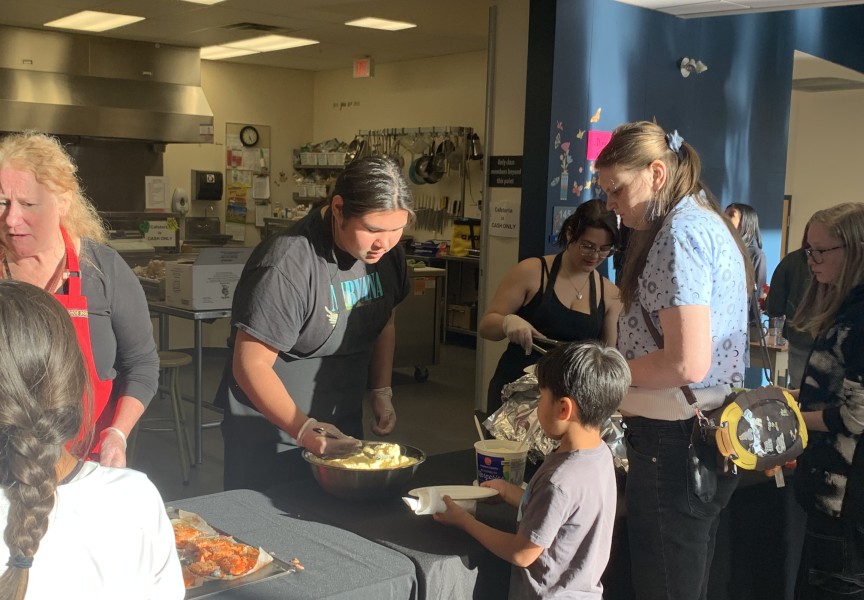With a gathering emphasizing Nuu-chah-nulth culture, this year an annual welcome dinner for Grade 8 students was opened up to all newcomers to the Alberni District Secondary School.
On Sept. 28 hundreds filled the ADSS’s lower atrium, as a circle began the event by singing Nuu-chah-nulth songs under one of the school’s totem poles. As hot dogs were barbequed outside, all present were also treated to a full dinner of potato salad, bannock, salmon and halibut.
“Traditionally it’s been for Grade 8 students and this year we opened it up to anyone who’s new to the school,” said Jeannette Badovinac, a vice-principal at ADSS. “There’s something about sharing a meal with somebody that brings in that connectedness, which is why we’re not just doing hot dogs. We’re actually doing a full traditional meal.”
A special invitation also went to the school’s international students, who come from places like Germany, Italy, Taiwan, Turkey and Ukraine.
“Germany, Italy are the two biggest groupings,” said ADSS Principal Rob Souther of the international students. “A steady rotation of kids come through. Some stay for only half the year, some stay for the full year.”
Many newcomers to the school also came from remote First Nations communities, such as Nitinaht Lake, Kyuquot and Ahousaht, staying with grandparents or aunts and uncles during their high school years. Stepping into ADSS, which has a student population of over 1,000, can be difficult for those from small coastal villages, but focusing on a student’s family roots can help to foster a sense of belonging, said Shelley Frank, a Nuu-chah-nulth education worker at ADSS.
“My biggest hurdle is finding their roots. Sometimes they can’t say where they’re from or who they’re from, but we’ll dig deep,” she said. “We’ll break down to how we’re related because it’s a part of our culture.”
Developing trust with students is critical, said Frank, but this can take time. Introducing “sharing circles” into the classroom has helped.
“We wait until they’re ready to say something,” she said. "Sometimes it will take them eight months to say something, sometimes it will take eight seconds.”
Aboriginal content has become ingrained into ADSS, where 32 per cent of its students are First Nations. But events like the welcoming gathering aren’t only to focus on the Indigenous students, explained Souther.
“I think it benefits everybody, I don’t think we need to break it down by whether you’re First Nations or otherwise,” he said. “It’s not so much about who you are or where you’re from, it’s that you’re part of our family now.”

